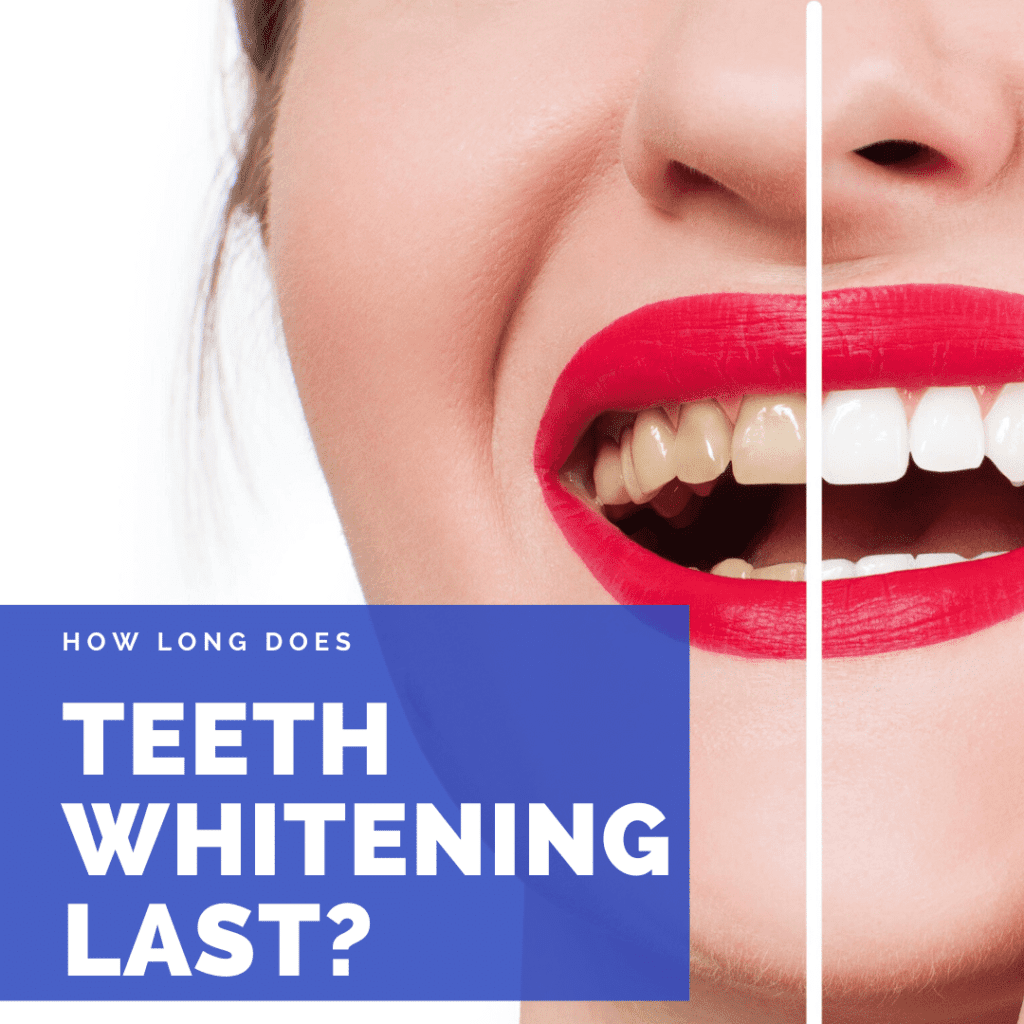Teeth whitening is a highly popular cosmetic dental treatment. In fact, it is one of the easiest ways to improve the look of your smile. Unlike other cosmetic dental treatments, which can be time consuming and costly, teeth whitening can be performed during a single dental appointment and is a more affordable cosmetic dental treatment.
When people are considering having their teeth professionally whitened, one common question we get is, “how long does teeth whitening last?” This is a fair question and the answer will likely play a role in your decision regarding professional teeth whitening treatments. While individual teeth whitening results can vary among the individual, on average the results from in-office teeth whitening procedures can last for about a year.
To understand why teeth whitening results only last a few years and how they can affect people differently, it is essential to first understand how teeth whitening works. When you get your teeth whitened, they are first cleaned to remove excess plaque and tartar, which ensures the whitening agent can be applied evenly. The whitening agent is then applied to the outer enamel where it is absorbed into both the enamel and dentin layers.
Professional grade whiteners work by initiating a chemical reaction that breaks apart discolored molecules. Since the whitener is absorbed by the enamel and dentin layers, discolored molecules are removed from both of these layers. Although most in-office whitening treatments only last about 30 minutes to an hour, the whitener remains active for about 24 hours after its initial application. This results in a brighter and whiter smile.
However, because the majority of stains are caused by highly pigmented foods and beverages, the teeth will not remain white forever. Ultimately, how long your teeth whitening results will depend on your diet and oral care routine. For example, someone who drinks primarily water and eats a variety of fruits and vegetables is more likely to have their teeth stay whiter for longer when compared to someone who drinks coffee daily and loves putting ketchup on everything.

In addition to diet, another thing that affects the lifespan of whitening results is oral hygiene. Regular brushing and flossing is essential to remove excess plaque and tartar, but is also important for removing highly pigmented molecules before they can stain the tooth. If you love consuming highly pigmented foods and beverages, then brushing your teeth after their consumption can help prevent stains.
In some cases, there may be other factors that can affect the color of your teeth. Things like age, genetics, and certain medications can all play a role in the color of your teeth. Discolorations caused by these factors may or may not respond well to whitening treatments and can affect how long the results last.
Even though most people experience results from teeth whitening that lasts about a year, your individual results may last shorter or longer than the average. Therefore, if you are considering having your teeth professionally whitened, you should speak with your local cosmetic dentist to get more accurate information about your projected results. Your dentist can also provide you with guidelines to maintain your results for longer. They may also advise other cosmetic treatments, such as veneers, that can improve the color of your teeth more permanently.

Dr. Michael C. Shuck received his Doctor of Dental Surgery (DDS) degree from the Medical College of Virginia, Cum Laude. He takes part in many volunteer outreach events, including Virginia’s Mission of Mercy project, Virginia Special Olympics, Give Kids a Smile, and the Jamaica Project. Dr. Shuck also is a regular volunteer at Williamsburg’s Olde Towne Medical Center. He actively participates with Virginia’s Donated Dental Service. Dr. Shuck has been a practicing dentist in the Williamsburg, Virginia area since 2007.


